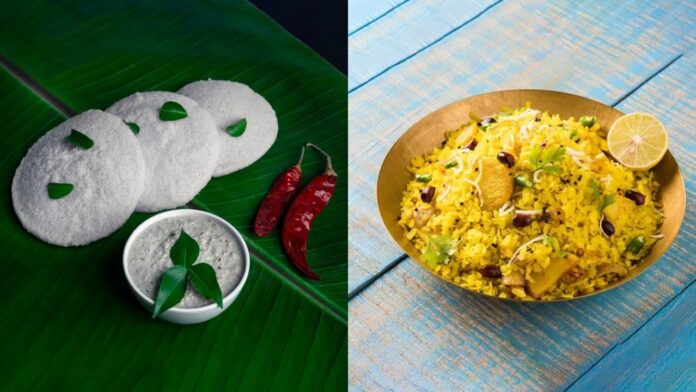When managing blood sugar, choosing the right foods is crucial for those with diabetes, especially for the first meal of the day. Breakfast, an essential meal for individuals with this metabolic condition, should ideally include a mix of protein, healthy fats, fiber, and complex carbohydrates to maintain stable glucose levels and provide energy throughout the day. Among popular breakfast options, poha and idli stand out for their health benefits, though each has its pros and cons. To understand which is a superior breakfast choice for diabetics, we sought insights from an Ayurvedic expert.
Poha’s Advantages: Poha, or flattened rice, is a valuable source of iron and vitamin B. When prepared with ingredients like peanuts, lemon, and coriander, it offers a balanced meal rich in carbohydrates, nutrients, and minerals. It’s particularly beneficial for weight management, heart health, digestive wellness, controlling cholesterol and blood pressure, and even cancer prevention. For diabetics, poha is a preferable alternative to white rice due to its fiber content, which moderates sugar absorption into the bloodstream. This dish is not only a source of carbohydrates and healthy fats but also serves as a probiotic, fostering gut health. The traditional method of preparing poha involves parboiling, sun-drying, and flattening the rice, which preserves beneficial microbes that promote digestive health. Low in calories, it’s an excellent choice for diabetics and individuals with anemia.
Idli’s Advantages: Idli, prepared from steamed rice, is celebrated for its healthfulness and simplicity, requiring no oil or spices in its preparation, making it suitable for all ages. However, the white rice typically used in idli can cause blood sugar levels to spike in diabetics. Altering the recipe to include millets or lentils instead of white rice can make idlis more diabetes-friendly. Idli is a nutritious dish, offering proteins, carbohydrates, vitamins, and minerals. The conventional recipe, which combines white rice with black lentils (urad dal), is high in carbs and starch, potentially raising blood sugar levels quickly. Substituting white rice with options like ragi, moong dal, various millets, or vegetables such as carrots and beetroots can make idli a healthier choice for those managing diabetes.
Both poha and idli have unique health benefits, making them viable breakfast options for individuals with diabetes. However, tweaking the traditional recipes to incorporate diabetes-friendly ingredients can enhance their nutritional value and make them more suitable for maintaining stable blood sugar levels.

 हिंदी
हिंदी






